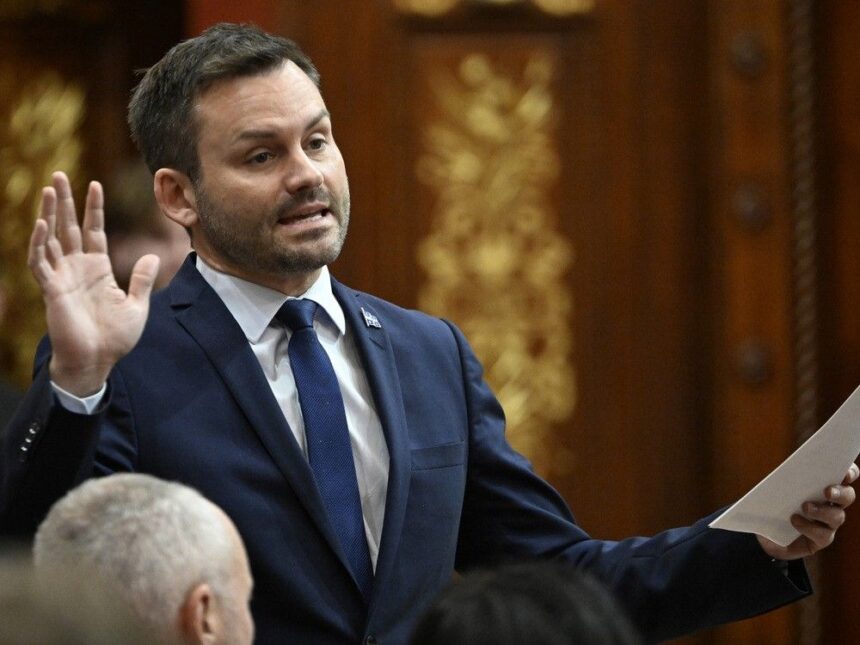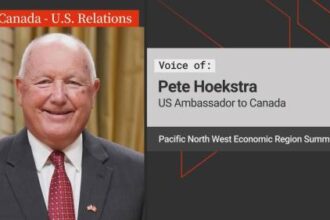In a surprising alliance that crosses traditional political divides, Parti Québécois leader Paul St-Pierre Plamondon has openly declared support for Alberta Premier Danielle Smith’s assertive stance on provincial autonomy, creating an unexpected East-West solidarity against what both leaders perceive as federal overreach.
“When I look at how Premier Smith defends Alberta’s interests, I see a leader taking a strong position to protect her province’s constitutional powers,” St-Pierre Plamondon stated during a press conference in Quebec City on Tuesday. “Despite our different visions for our respective provinces, we share common ground in defending provincial jurisdiction.”
This unusual political alignment emerges as both leaders continue to challenge federal authority, albeit from different ideological perspectives. Smith’s United Conservative Party government has implemented the Alberta Sovereignty Act to resist federal policies deemed harmful to Alberta’s interests, particularly regarding energy and resource development. Meanwhile, the sovereigntist Parti Québécois has consistently advocated for Quebec’s autonomy within the Canadian federation, with separation remaining its ultimate goal.
Political analysts suggest this cross-provincial solidarity reflects growing tensions in federal-provincial relations. “We’re witnessing a recalibration of provincial power dynamics across Canada,” notes Dr. Elena Rousseau, professor of Canadian politics at McGill University. “When provinces as politically distinct as Quebec and Alberta find common cause, it signals significant stress in our federal system.”
The federal government has responded cautiously to this developing alliance. A spokesperson for the Prime Minister’s Office emphasized that “constructive federalism requires good faith cooperation from all levels of government,” while reiterating the federal government’s commitment to respecting provincial jurisdictions “within the constitutional framework.”
The convergence becomes particularly significant as both provinces face crucial policy battles with Ottawa. Alberta continues to resist federal environmental regulations affecting its energy sector, while Quebec seeks greater control over immigration and cultural policies. Both leaders argue these matters fall squarely within provincial jurisdiction under the constitution.
Public reaction has been mixed, with supporters lauding the stand for provincial rights while critics worry about further fragmentation of national policies. Recent polling suggests growing public appetite for stronger provincial autonomy, with 58% of Albertans and 62% of Quebecers supporting their respective leaders’ positions.
Constitutional experts caution that this development could mark a significant shift in Canadian federalism. “The Canadian federation has always balanced central authority with provincial autonomy,” explains constitutional scholar Dr. James Richardson. “But what we’re seeing now goes beyond the typical tensions. It could fundamentally reshape how our federation functions.”
As provincial elections approach in both regions within the next two years, this stance on autonomy will likely feature prominently in campaign platforms. The question remains: will this unexpected alliance between traditional adversaries create a new paradigm for provincial resistance, or will it prove a temporary alignment of convenience in Canadian political history?

























